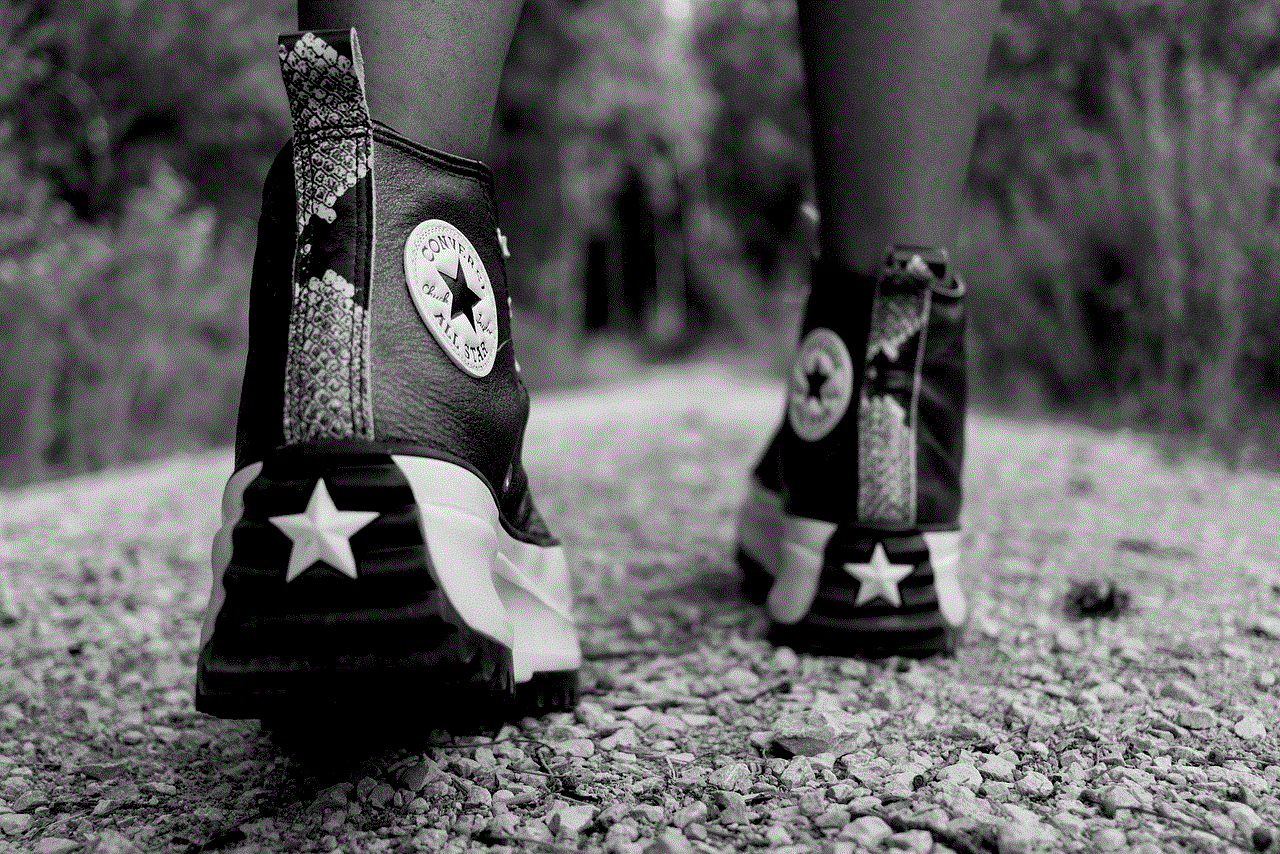if you search someone on facebook will they know
With over 2.8 billion active users, facebook -parental-controls-guide”>Facebook is undeniably the largest social media platform in the world. It is a place where people connect with friends, share their thoughts and experiences, and discover new things. One of the most intriguing features of Facebook is its search function, which allows users to find other people on the platform. However, this raises the question, if you search someone on Facebook, will they know?
The answer to this question is not a simple yes or no. It depends on several factors and features of the platform. In this article, we will explore the different aspects of Facebook search and whether or not someone will know if you search for them on the platform.
What happens when you search for someone on Facebook?
Before we dive into the main question, let’s first understand what happens when you search for someone on Facebook. When you type a name or keyword into the search bar, Facebook’s algorithm starts working to show you the most relevant results. These results are based on various factors such as mutual friends, location, and shared interests.
If you are friends with the person you are searching for, their profile will appear at the top of the results. If you are not friends with them, you will see a list of profiles that match your search query. However, Facebook also has a feature called “People You May Know,” which shows you profiles of people you are not friends with but may know based on mutual connections.
In short, when you search for someone on Facebook, the platform shows you a list of profiles that match your search query, whether you are friends with them or not.
Will the person know if you search for them on Facebook?
The answer to this question is not a straightforward one. It depends on the privacy settings of the person you are searching for and the features you use while searching for them.
If the person has set their privacy settings to allow anyone to search for them, then they will not receive any notification or alert when you search for them. However, if their privacy settings are set to limit who can search for them, they may receive a notification that you searched for them.
Moreover, if you use Facebook’s “People You May Know” feature to search for someone, they may receive a notification that you have viewed their profile. This feature uses your mutual connections and other data to suggest profiles to you, and when you click on a suggested profile, the person may receive a notification about it.
In short, if the person has set their privacy settings to allow anyone to search for them, they will not know if you search for them. But if their privacy settings are set to limit who can search for them, they may receive a notification or see your name in their search history.
Can you search for someone on Facebook without them knowing?
Now that we have established that someone may know if you search for them on Facebook, the question arises, is it possible to search for someone without them knowing?
The answer is yes, but it requires some extra effort and attention to detail. If you want to search for someone on Facebook without them knowing, you need to take the following steps:
1. Log out of your Facebook account: The first and most crucial step is to log out of your Facebook account. If you are logged in, Facebook will track your search history and may show up in the person’s search results.
2. Use a search engine: Instead of using Facebook’s search bar, use a search engine like Google or Bing to search for the person’s name. This way, your search will not be linked to your Facebook account.
3. Use a different account: If you have a second Facebook account, you can use it to search for the person. However, make sure not to use the same device or IP address, as Facebook may still link your searches.
4. Use a private browser: Another option is to use a private or incognito browser to search for the person. This way, Facebook will not be able to track your search history.
5. Use a VPN: A VPN or Virtual Private Network can also help you search for someone on Facebook without them knowing. It changes your IP address, making it difficult for Facebook to track your searches.
In short, it is possible to search for someone on Facebook without them knowing, but it requires extra precautions and possibly the use of third-party tools.
Other ways someone can know if you searched for them on Facebook



Apart from the notifications and search history, there are other ways someone can know if you searched for them on Facebook. These include:
1. Mutual friends: If you have mutual friends with the person you searched for, they may mention it to them in casual conversation. This may not be intentional, but it is still a possibility.
2. Facebook groups: If you are both members of the same Facebook group, your search may show up in the group’s search history, and the person may see it.
3. Tagged photos: If you are tagged in a photo with the person you searched for, they may see your search in the photo’s comment section.
4. Facebook ads: Facebook uses your search history and data to show you relevant ads. If you search for someone, you may start seeing ads related to them, which may give away that you searched for them.
5. Facebook marketplace: If you search for someone on Facebook marketplace, they may see your search in their marketplace history.
In short, there are various ways someone can know if you searched for them on Facebook, even if you take the necessary precautions.
What about Facebook stalking?
The term “Facebook stalking” has become quite common in recent years. It refers to the act of constantly checking someone’s profile, photos, and updates on the platform. Many people wonder if the person they are “stalking” will know about it.
The answer is no, they will not know if you are checking their profile multiple times a day. Facebook does not have a feature that shows who viewed your profile or how many times. However, if you like, comment, or share their posts or photos, they may see your activity in their notifications.
Moreover, if you have a habit of checking someone’s profile frequently, Facebook may start suggesting them to you more often in your news feed or “People You May Know” section. This can be a tell-tale sign that you have been frequently checking their profile.
Conclusion



In conclusion, if you search someone on Facebook, they may or may not know about it, depending on various factors. If their privacy settings allow anyone to search for them, they will not receive any notification or see your name in their search history. However, if their privacy settings are limited, they may receive a notification or see your name in their search history.
It is possible to search for someone on Facebook without them knowing, but it requires extra precautions and possibly the use of third-party tools. However, there are other ways someone can know if you searched for them on Facebook, such as mutual friends, Facebook groups, tagged photos, and Facebook ads.
At the end of the day, it is important to respect people’s privacy and not invade their online space. If you are looking to connect with someone on Facebook, it is always best to do it directly rather than through a search. Remember, just because you can search for someone on Facebook, doesn’t mean you should.
location on snapchat
Snapchat is a social media app that has taken the world by storm since its launch in 2011. With over 280 million daily active users, it has become one of the most popular platforms for sharing photos and videos with friends and followers. One of the key features of Snapchat is its “location” feature, which allows users to share their whereabouts with their friends in real-time. In this article, we will take a closer look at the location feature on Snapchat and how it has changed the way we share our lives with others.
To begin with, let us understand what the location feature on Snapchat is all about. Essentially, it is a way for users to let their friends know where they are at any given point in time. This feature uses the GPS on the user’s device to pinpoint their location and display it on a map. The user has the option to either share their precise location or choose a general location, such as a city or neighborhood. By default, the location feature is turned off, and users have to manually enable it if they wish to use it.
So, why do people use the location feature on Snapchat? There are a few reasons for this. Firstly, it allows users to show off their travels and adventures to their friends. By sharing their location, they can let their friends know that they are at a particular tourist spot, restaurant, or event. This not only gives their friends a glimpse into their life but also allows them to make plans to meet up if they are in the same area. Secondly, the location feature is a great way to keep track of friends and family. If you are planning to meet up with someone, you can easily see their location on the map and know when they are close by. Lastly, some users simply enjoy sharing their location as a way to stay connected with their friends, even when they are not actively chatting.
The location feature on Snapchat has also been a game-changer for businesses. With the rise of location-based marketing, businesses can now use Snapchat to promote their products and services to a highly targeted audience. For instance, a restaurant can create a “geofilter” for its location, which users can then add to their snaps when they visit the restaurant. This not only creates brand awareness but also serves as a form of word-of-mouth marketing as the filter is shared with the user’s followers. Additionally, businesses can also use the location feature to offer special discounts or promotions to users who are in the vicinity of their store.
However, like any other feature on social media, the location feature on Snapchat has its fair share of concerns. One of the main concerns is the issue of privacy. While Snapchat has taken measures to ensure that users have control over who can see their location, there have been instances where this information has been misused. In 2017, a website called “Snap Map” was launched, which allowed users to see the location of all their friends on a map, regardless of their privacy settings. This caused an uproar among parents and privacy advocates, as it could potentially put users, especially minors, at risk. As a result, Snapchat introduced a “ghost mode” feature, which allows users to hide their location from others.
Another concern is the potential for stalking or cyberbullying. By sharing their location, users are essentially giving others a way to track their movements. This can be dangerous, especially for young and vulnerable users. There have been cases where users have been harassed or bullied by their peers after sharing their location on Snapchat. To combat this issue, Snapchat has introduced several safety measures, such as the ability to block and report users, as well as a “quick add” feature, which suggests friends based on mutual friends and interests rather than location.
Despite these concerns, the location feature on Snapchat continues to be a popular tool for users to share their lives with their friends. In fact, it has evolved into much more than just a feature to share one’s whereabouts. With the introduction of “Snap Map Stories,” users can now see public snaps from events and locations around the world. This allows them to explore different places and events virtually and experience them through the lens of others. It has also become a way for users to discover new places and events, which they may not have known about otherwise.



Moreover, the location feature has also been a useful tool during natural disasters and emergencies. During Hurricane Harvey in 2017, Snapchat introduced a feature called “Snap Maps Our Story,” which allowed users to share their snaps on a map, giving others a real-time view of the situation on the ground. This not only helped people stay informed but also served as a way for users to request for help or assistance if needed. Similarly, during the COVID-19 pandemic, users have been using the location feature to share information about social distancing and lockdown measures in different cities and countries.
In conclusion, the location feature on Snapchat has revolutionized the way we share our lives with others. It has not only made it easier for us to keep track of our friends and family but has also opened up new possibilities for businesses and marketers. However, like any other feature on social media, it is important to use it responsibly and be aware of the potential risks. With the constant advancements in technology, it is exciting to see how the location feature on Snapchat will continue to evolve and shape our social media experience in the future.